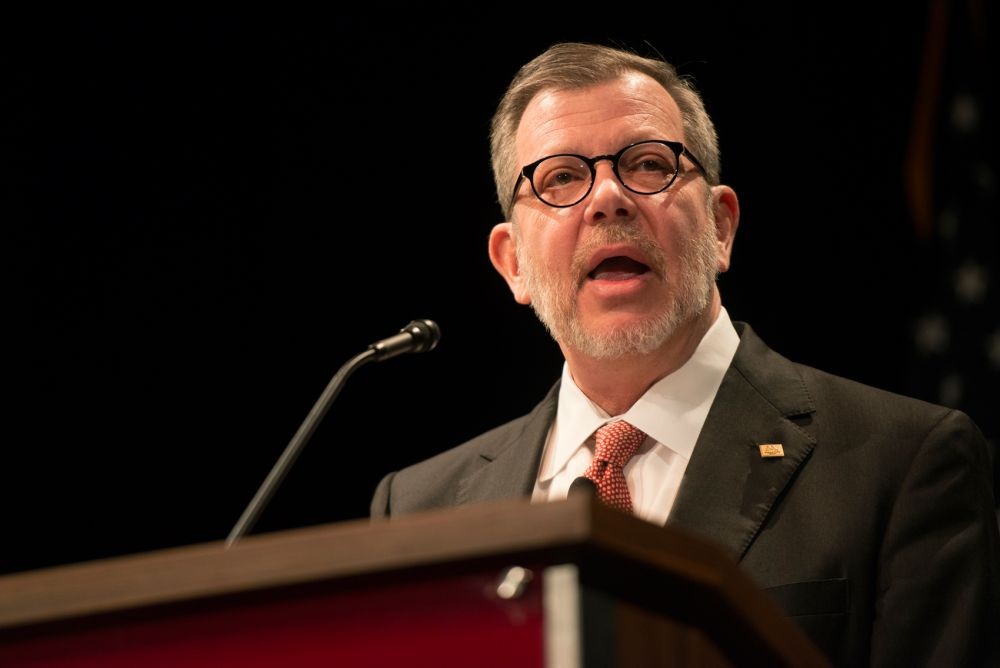As the University of Minnesota continues to lobby for more than $147 million in state funds, school administrators fielded questions from state senators Tuesday afternoon.
Members of the Senate’s Higher Education Committee questioned University President Eric Kaler, Provost Karen Hanson, Senior Vice President Brian Burnett and Budget Director Julie Tonneson about the University’s athletics department, the medical school’s decline in rankings and non-resident tuition costs.
The hearing came after Kaler and other University officials were questioned by the House’s Higher Education Committee last week.
The House and Senate haven’t released their recommendations for state funding, but Gov. Mark Dayton recently recommended that the school receive nearly $97 million of its request.
After a presentation on the school’s funding, graduation rates and overall ranking in the Big Ten, senators asked school leaders about how the athletics department could to change its culture.
Kaler said Minnesota had more Big Ten titles last year than Wisconsin and Iowa combined, but the wins went unnoticed because revenue sports such as football and men’s basketball didn’t echo the trend.
“In order for us to be proud of Gophers athletics, football and men’s basketball need to be premier programs,” Kaler said. “Football and men’s basketball drive the boat in terms of revenue.”
Kaler said hiring Athletics Director Mark Coyle and investing in the Athletes Village project were two ways the University has tried to improve the programs.
He said to raise the quality of the University’s athletics department, it had to start with investing money in people.
P.J. Fleck, the Gophers new head football coach, was recently given an five-year, $18 million contract — the costliest in University history — after previous coach Tracy Claeys was fired amid fallout from a sexual assault scandal.
Sen. Michelle Fischbach, R-Paynesville questioned Kaler on the need to change the football team’s culture. Kaler pointed to Fleck’s coaching style, which Kaler said addresses life as well as football.
Other questions focused on the fall of the University’s medical school rankings.
Sen. Richard Cohen, DFL-St. Paul, wondered how the University planned to raise the medical school’s national ranking.
University Medical School Dean Brooks Jackson said the school has invested in research and emphasized scholarships and packages for recruiting researchers.
He also pointed to the University’s high ranking in family medicine and notable advancements in primary care medicine.
“I think we’re making great strides,” Jackson said. “This has been a major effort … All of this will make it a better medical school.”
Additionally, Sen. Greg Clausen, DFL-Apple Valley, asked if the recent increase to non-resident tuition impacted applications.
“Last year, we increased 7.5 percent, and that was fairly successful. We saw very little dip in admission in the number of students that come,” Kaler said. “This year, we’re planning 10 percent … right now. [But it’s] not possible to accurately predict what we’ll see.”








